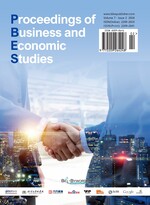Abstract
At present, it is impossible to deny the existence of artificial intelligence in various areas of social life, understood as the simulation of expert human intelligence from computer processes that involve learning, reasoning, and self-correction, its benefits to the medical field, in particular, are innumerable, but their incorporation into health systems has been gradual for many reasons. According to the above, this research analyzed artificial intelligence based on resilient leadership in the health sector, for which qualitative research was carried out with a documentary-bibliographic design with printed and electronic documentary sources with theoretical contributions from Ávila, Mayer, and Quesada, Morgan, Villa, and Finol, among others. It is highlighted that resilient leadership has become a strategic factor in all organizations, since times of uncertainty and changes lead institutions to properly manage the incorporation of technologies specifically AI, achieving in this way that the centers and professionals in the field of health assume the needs of the contexts and the innovations of the same. It is concluded that resilient leadership will allow artificial intelligence in the health sector to generate higher levels of learning and adaptability to the transformations that are necessary, whose resistance would make its application difficult and in the long run it will leave behind professionals who refuse to assume the contributions of these innovative techniques in medical practice.
References
Ávila J, Mayer M, Quesada V, 2021, La Inteligencia Artificial y sus Aplicaciones en Medicina II: Importancia Actual y Aplicaciones Prácticas [Artificial Intelligence and Its Applications in Medicine II: Current Importance and Practical Applications]. Atención Primaria, 53(1): 81–88. https://doi.org/10.1016/j.aprim.2020.04.014
Morgan J, 2020, La Resiliencia: Habilidad Esencial Para Hacerle Frente a la Cuarta Revolución Industrial [Resilience: Essential Skill to Cope with the Fourth Industrial Revolution]. Rev Nac Adm, 11(1): 21–31.
Villa A, 2020, Liderazgo Resiliente Pertinente Para Una Sociedad Cambiante [Resilient Leadership Relevant to a Changing Society]. Foro Educacional, 2020(34): 77–103.
Finol M, 2019, Liderazgo Resiliente Ante Escenarios Prospectivos [Resilient Leadership in the Face of Prospective Scenarios]. Revista de Investigación Sigma, 6(1): 28–39. https://doi.org/10.24133/sigma.v6i01.1259
Rouse M, 2021, Qué es Inteligencia Artificial, o AI? [What is Artificial Intelligence, or AI?]. Definition and WhatIs.com, TechTarget, viewed November 25, 2022. https://searchdatacenter.techtarget.com/es/definicion/Inteligencia-artificial-o-AI
Bohr A, Memarzadeh K, 2020, La Asistencia Sanitaria Actual, Datos Masivos y el Aprendizaje Automático [Today’s Healthcare, Massive Data and Machine Learning], in Inteligencia Artificial En El Ámbito de la Salud [Artificial Intelligence in Healthcare]. Elsevier, Spain.
Cecco C, Van Assen M, 2022, Inteligencia Artificial y Telemedicina en el Sector de la Salud [Artificial Intelligence and Telemedicine in the Health Sector]. Development Bank of Latin America, viewed November 25, 2022, https://mail.google.com/mail/u/1/ogbl#inbox/FMfcgzGqRZfBNmRTjbfsRjghXXKPJJWS?projector=1&messagePartId=0.1
Rouhiainen L, 2018, Inteligencia Artificial [Artificial Intelligence]. Editorial Aliente, Spain.
Arrollo J, 2022, Fundamentos Básicos de NVIDIA Jetso Nano [NVIDIA Jetso Nano Basics]. SERVICEPOINT, Spain.
Rodríguez P, 2018, Inteligencia Artificial: Cómo Cambiará el Mundo y tu Vida [Artificial Intelligence: How It Will Change the World and Your Life], viewed December 6, 2022, https://espacio.fundaciontelefonica.com/evento/inteligencia-artificialcomo-cambiara-el-mundo-y-tu-vida/
Mintz Y, Brodie R, 2019, Introduction to Artificial Intelligence in Medicine. Minim Invasive Ther Allied Technol, 28(2): 73–81. https://doi.org/10.1080/13645706.2019.1575882
Jiménez HLG, 2021, Inteligencia Artificial Como Potencia de Herramienta en Salud [Artificial Intelligence as a Tool Power in Artificial Health Information for Health Care Managers]. INFODIR, 17(36): 1–30.
Lussier RN, Achua CF, 2011, Liderazgo. Teoría, Aplicación y Desarrollo de Habilidades [Leadership: Theory, Application, and Skill Development]. Thomson Learning, Mexico.
Mayorga F, Arias D, Mayorga I, et al., 2019, Liderazgo: Una Habilidad Gerencial Fundamental en el Éxito de una Empresa en el Siglo XXI [Leadership: A Fundamental Managerial Skill in the Success of a Company in the 21st Century]. RECIMUNDO, 3(3): 1061–1084.
Jiménez A, Gómez D, Rendón J, et al., 2020, Revisión del Liderazgo, sus Estilos y Modelos de Medición en la Última Década [Review of Leadership, Its Styles and Measurement Models in the Last Decade]. RHS, 8(1): 81–98.
Ramírez R, Lay N, Avendaño I, et al., 2018, Liderazgo Resiliente Como Competencia Potenciadora del Talento Humano [Resilient Leadership as an Empowering Competence of Human Talent]. Revista de Ciencias Humanas y Sociales, 34(86): 826–854.
Gonçalves L, Sala R, 2022, Importancia de la Resiliencia Individual y Organizacional para la Salud Laboral del Personal Sanitario [Importance of Individual and Organizational Resilience for the Occupational Health of Healthcare Personnel]. Revista de la Asociación Española de Especialistas en Medicina del Trabajo, 30(2): 151–160.
Moreno M, 2022, Hacia la Transición a un Liderazgo Empoderado y Resiliente en los Profesionales de Enfermería [Toward the Transition to an Empowered and Resilient Leadership in the Nursing Professionals]. R Aquichan, 22(4): e2241. https://doi.org/10.5294/aqui.2022.22.4
Segovia A, 2021, El Reinicio Tecnológico de la Inteligencia Artificial en el Servicio Público de Salud [The Technological Reboot of Artificial Intelligence in the Public Health Service]. IUS ET SCIENTIA, 7(1): 327–356.
Ñaupas H, Mejía E, Novoa E, et al., 2014, Metodología de la Investigación Cuantitativa – Cualitativa [Research Methodology. Quantitative – Qualitative]. Ediciones de la U, Colombia.
